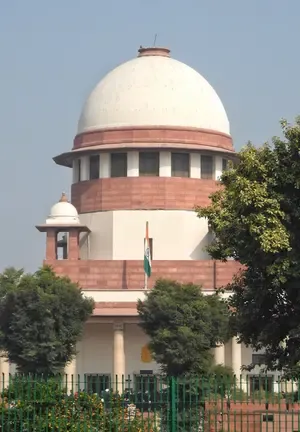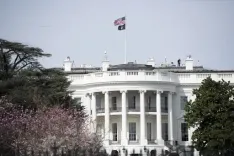Why Did the SC Deny Arvind Dham's Bail Request?

Synopsis
Key Takeaways
- Supreme Court denies interim bail to Arvind Dham.
- Case involves allegations of money laundering and bank fraud.
- ED has provisionally attached assets valued at Rs 557.49 crore.
- Ongoing investigations raise questions about corporate accountability.
- Legal proceedings highlight the importance of financial integrity.
New Delhi, June 16 (NationPress) The Supreme Court has, on Monday, denied the appeal from Arvind Dham, the promoter of the Amtek Group, for interim bail relating to a money laundering case.
Initially, a bench consisting of Justices Sandeep Mehta and Prasanna B. Varale referred to a previous ruling from the apex court, which had already rejected Dham's interim bail on medical grounds.
“Are you asking us to review that order? Your SLP was earlier dismissed by a 3-judge Bench! Now, you are trying to get the same relief in this vacation,” commented Justice Mehta during the hearing.
Recognizing the Supreme Court's reluctance to hear the case, Mukul Rohtagi, representing the petitioner, requested permission to withdraw the special leave petition (SLP). Consequently, the court dismissed the SLP as withdrawn.
Previously, the Delhi High Court had also refused Dham's request for interim bail while awaiting the resolution of his regular bail application.
Dham's legal counsel argued that he has been in custody for 11 months, with his regular bail application pending since February 2025. The Enforcement Directorate (ED) opposed the request, stating they had not sought any adjournments and that there were no grounds for granting interim bail.
The ED referenced the apex court's decision from April 7, which had declined to extend Dham's interim bail on medical grounds.
In a ruling on May 30, Justice Ravinder Dudeja noted that the regular bail application could not be resolved partly due to changes in roster and also because of the interim bail application filed on medical grounds, which had been heard multiple times. “Since the matter is already part-heard on merits, I do not find it appropriate to grant interim bail to the applicant/accused. However, considering the liberty of the applicant/accused, the date is advanced to 15.07.2025,” ordered Justice Dudeja.
The ED started its investigation following the Supreme Court's order on February 27, 2024, in response to a PIL against the Amtek Auto group, directing the federal anti-money laundering agency to probe a case involving bank fraud amounting to Rs 27,000 crore.
The apex court expressed alarm over the alleged diversion of public funds, underlining the importance of a thorough investigation by the ED, even if the banks had settled their accounts. Several FIRs were filed by the CBI based on complaints from IDBI Bank and Bank of Maharashtra regarding allegations of illicitly diverting bank loans, leading to significant losses.
During the investigation, the ED provisionally attached assets valued at Rs 557.49 crore under the Prevention of Money Laundering Act (PMLA). Findings indicated that the financial statements of the group companies were fraudulently manipulated to secure additional loans and create fictitious assets.
Previously, the ED had conducted searches at over 40 locations and arrested Dham, subsequently filing a prosecution complaint on September 6, 2024.









